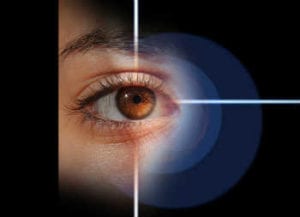
Your corneal tissue has the ability to heal quickly from minor injuries, such as scratches, without experiencing infection or vision problems. Deeper injury or diseases can permanently damage your vision. If your cornea becomes damaged you could experience:
- Vision clouding
- Vision distortion
- Eye scarring
Corneal injury and disease can also be extremely painful.
Treating damage to your cornea
If your cornea-related vision problems can’t be corrected with glasses or contact lenses, or if painful swelling can’t be relieved by medication, you may need a cornea transplant in order to restore your sight. A corneal transplant (keratoplasty) is a surgical procedure to replace a damaged or diseased cornea with healthy tissue from a donor. The good news is that corneal tissue transplantation has a long history of successful outcomes. And some 40,000 cornea transplants are performed in the U.S. each year.
Corneal transplant tissue comes from an eye bank
The sight-restoring procedure wouldn’t be possible without the nearly 50,000 cornea donors and their families, who every year give people with corneal disease the gift of sight. When tissue becomes available from a corneal donor, Dr. Croley will review all relevant information before accepting the tissue for you.
The surgery
Dr. Croley will transfer the clear central part of the donor cornea to your eye in a one- to two-hour outpatient surgery. And you can resume your normal activities soon after.
Regaining your vision
Depending on your individual healing and any other eye issues, it may take up to a year before your transplant provides you with final results – your best vision possible.
Learn more about cornea transplant surgery
Get the diagnosis and information you need to make sure you get the proper treatment. Call for an appointment today: (352)-237-8400.




